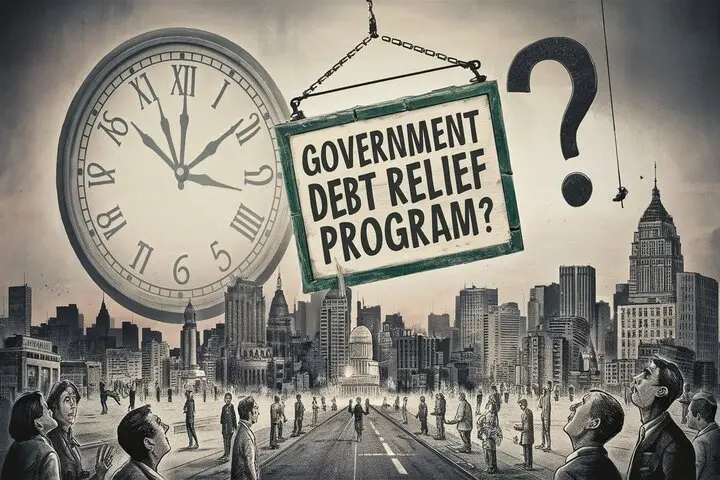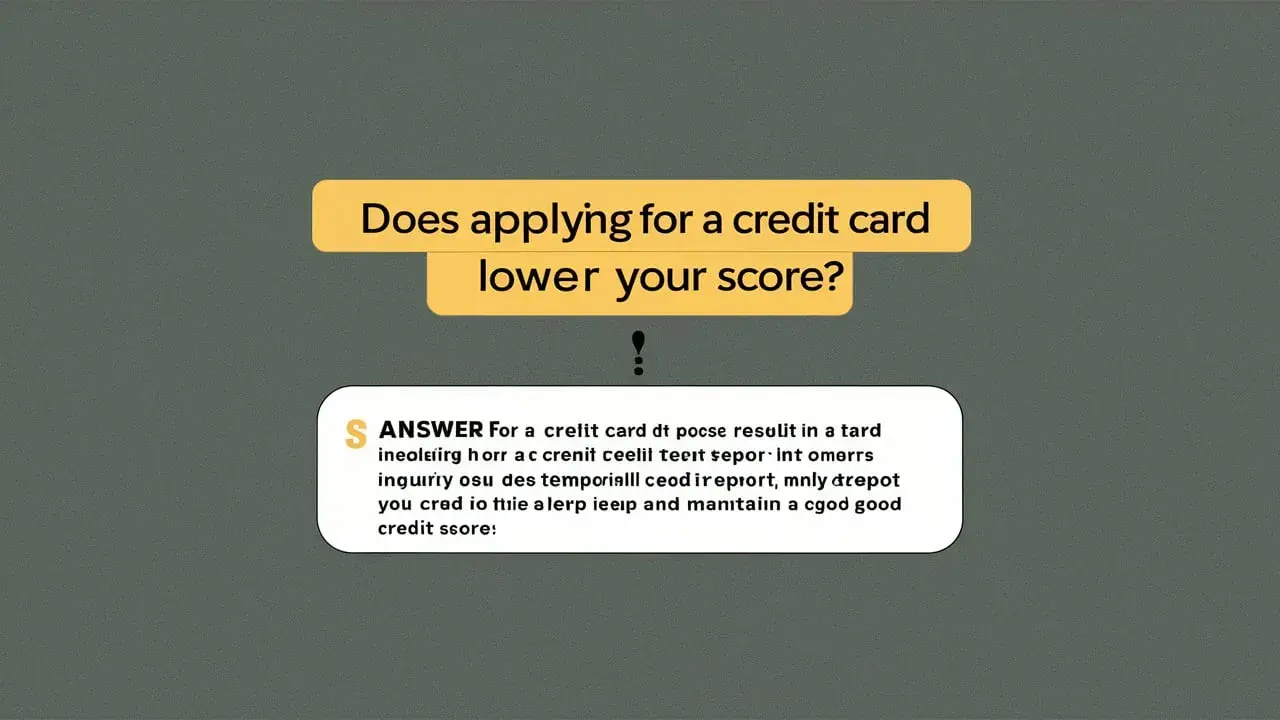-
Posted on: 26 Jul 2024

-
Debt can feel like an insurmountable burden, leading many to search for a lifeline. The promise of a government-sponsored debt relief program can seem like a beacon of hope. However, navigating the world of debt relief requires caution and knowledge. This article aims to shed light on whether genuine government debt relief programs exist, differentiate them from private sector options, and offer practical advice to help you make informed decisions about your financial future.
Understanding the Landscape of Debt Relief
The term "debt relief" encompasses a variety of strategies designed to alleviate the burden of debt. These strategies can range from simple budgeting techniques to formal debt management plans or debt settlements. Understanding the different approaches is crucial before exploring whether a government program is the right fit for your situation.
Different Types of Debt Relief Options:
- Debt Management Plans (DMPs): Typically offered by non-profit credit counseling agencies, DMPs involve consolidating your debts and making a single monthly payment to the agency, which then distributes the funds to your creditors. Often, these agencies can negotiate lower interest rates on your behalf.
- Debt Consolidation Loans: These loans involve taking out a new loan to pay off existing debts. The idea is to secure a lower interest rate or a more manageable payment schedule. However, be cautious of fees and ensure the new loan truly offers better terms than your current debts.
- Debt Settlement: This involves negotiating with your creditors to pay a lump sum that is less than the total amount owed. Debt settlement can significantly impact your credit score and may have tax implications.
- Bankruptcy: Bankruptcy is a legal process that can discharge certain debts. It's a serious step with long-term consequences for your creditworthiness, but it can provide a fresh start for individuals facing overwhelming debt.
The Reality of Government Debt Relief Programs
The short answer is: Yes, some government-backed debt relief programs exist, but they are often specific to certain types of debt or specific situations. There isn't a blanket "government debt relief program" that covers all types of consumer debt like credit card debt or personal loans.
Specific Government Programs to Consider:
Federal Student Loan Programs:
The U.S. Department of Education offers several programs designed to help borrowers manage their federal student loan debt. These programs are arguably the most prominent and widely known form of government debt assistance.
- Income-Driven Repayment (IDR) Plans: These plans, such as Income-Based Repayment (IBR), Pay As You Earn (PAYE), and Saving on a Valuable Education (SAVE), adjust your monthly payments based on your income and family size. After a certain number of years (typically 20-25), the remaining balance may be forgiven.
- Public Service Loan Forgiveness (PSLF): This program forgives the remaining balance on your Direct Loans after you've made 120 qualifying payments while working full-time for a qualifying public service employer (e.g., government organizations, non-profit organizations). The requirements for PSLF can be strict, so careful planning and documentation are crucial.
- Teacher Loan Forgiveness: Certain teachers who teach full-time for five consecutive years in a low-income school may be eligible for loan forgiveness.
- Student Loan Forgiveness due to School Closure or Misrepresentation: In certain circumstances, if your school closed while you were enrolled or within a specific timeframe after you withdrew, or if the school misrepresented its programs, you might be eligible for loan forgiveness.
IRS Tax Debt Relief Programs:
The IRS offers various options for taxpayers struggling to pay their tax debts. These options are designed to help individuals and businesses resolve their tax liabilities in a manageable way.
- Offer in Compromise (OIC): An OIC allows eligible taxpayers to settle their tax debt for a lower amount than what they originally owed. The IRS considers factors like your ability to pay, income, expenses, and asset equity when evaluating an OIC application. Acceptance is not guaranteed.
- Installment Agreement: This allows you to pay your tax debt in monthly installments over a period of time. Penalties and interest continue to accrue until the debt is paid in full.
- Currently Not Collectible (CNC) Status: If you can demonstrate that paying your tax debt would create a significant financial hardship, the IRS may temporarily suspend collection efforts and place your account in CNC status. This doesn't eliminate the debt, but it provides temporary relief.
Housing Assistance Programs:
While not strictly "debt relief," various government programs offer assistance with housing costs, which can indirectly free up funds to pay down other debts.
- Section 8 Housing Choice Voucher Program: This program provides rental assistance to eligible low-income families, the elderly, and people with disabilities.
- Mortgage Assistance Programs: During times of economic hardship, government agencies and private organizations may offer mortgage assistance programs to help homeowners avoid foreclosure. These programs can include loan modifications, forbearance agreements, or government-sponsored counseling.
Avoiding Debt Relief Scams
Unfortunately, the promise of quick and easy debt relief attracts scammers who prey on vulnerable individuals. It's crucial to be aware of the warning signs and protect yourself from fraudulent schemes.
Red Flags of Debt Relief Scams:
- Upfront Fees: Legitimate debt relief services typically do not charge fees before providing services. Be wary of any company that demands payment upfront.
- Guaranteed Results: No legitimate debt relief company can guarantee specific outcomes, such as debt elimination or a specific reduction in your debt.
- Pressure Tactics: Scammers often use high-pressure sales tactics to push you into making a quick decision.
- Requests for Personal Information: Be cautious about providing sensitive personal information (e.g., Social Security number, bank account details) to unsolicited callers or websites.
- Unrealistic Promises: Promises that seem too good to be true usually are. Be skeptical of companies that claim to eliminate your debt instantly or drastically reduce your payments without any consequences.
Protecting Yourself from Scams:
- Research the Company: Before engaging with any debt relief service, check their reputation with the Better Business Bureau (BBB) and your state's Attorney General's office.
- Read the Fine Print: Carefully review all contracts and agreements before signing anything. Make sure you understand the fees, terms, and conditions.
- Get Everything in Writing: Ensure all agreements and promises are documented in writing.
- Don't Give in to Pressure: Take your time to research and consider your options carefully. Don't be rushed into making a decision.
- Report Suspected Scams: If you suspect you've been targeted by a debt relief scam, report it to the Federal Trade Commission (FTC) at ftc.gov.
Steps to Take Before Seeking Debt Relief
Before exploring debt relief programs, take the following steps to gain a clear understanding of your financial situation and identify potential solutions:
1. Assess Your Financial Situation:
Create a detailed budget that outlines your income, expenses, assets, and liabilities. This will provide a clear picture of your current financial status and help you identify areas where you can cut back on spending.
2. Understand Your Debts:
Compile a list of all your debts, including the creditor, account number, outstanding balance, interest rate, and minimum monthly payment. This information is essential for evaluating your debt relief options.
3. Explore Budgeting and Debt Management Techniques:
Consider implementing basic budgeting strategies, such as tracking your spending, creating a budget, and automating savings. You can also explore debt management techniques like the debt snowball or debt avalanche method to accelerate debt repayment.
4. Contact Your Creditors:
Reach out to your creditors to discuss potential options, such as hardship programs, lower interest rates, or modified payment plans. Many creditors are willing to work with borrowers who are experiencing financial difficulties.
5. Consider Credit Counseling:
Non-profit credit counseling agencies can provide free or low-cost financial counseling and debt management services. A certified credit counselor can help you assess your financial situation, develop a budget, and explore debt relief options.
Making an Informed Decision
Choosing the right debt relief strategy depends on your individual circumstances, including the type and amount of debt you have, your income, your credit score, and your long-term financial goals. Carefully weigh the pros and cons of each option and seek professional advice if needed. Remember, there is no one-size-fits-all solution, and what works for one person may not work for another.
Key Considerations:
- Credit Score Impact: Understand how each debt relief option will affect your credit score. Debt settlement and bankruptcy, for example, can have a significant negative impact.
- Fees and Costs: Be aware of all fees and costs associated with debt relief services. Compare the costs of different options and choose the most affordable solution.
- Tax Implications: Certain debt relief strategies, such as debt settlement, can have tax implications. Consult with a tax professional to understand the potential tax consequences.
- Long-Term Financial Goals: Consider how your debt relief strategy aligns with your long-term financial goals. Choose an option that will help you build a solid financial foundation for the future.











